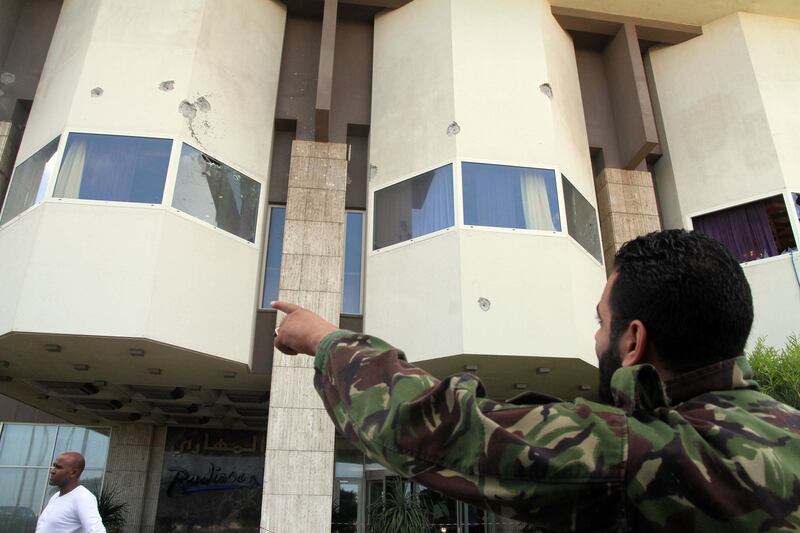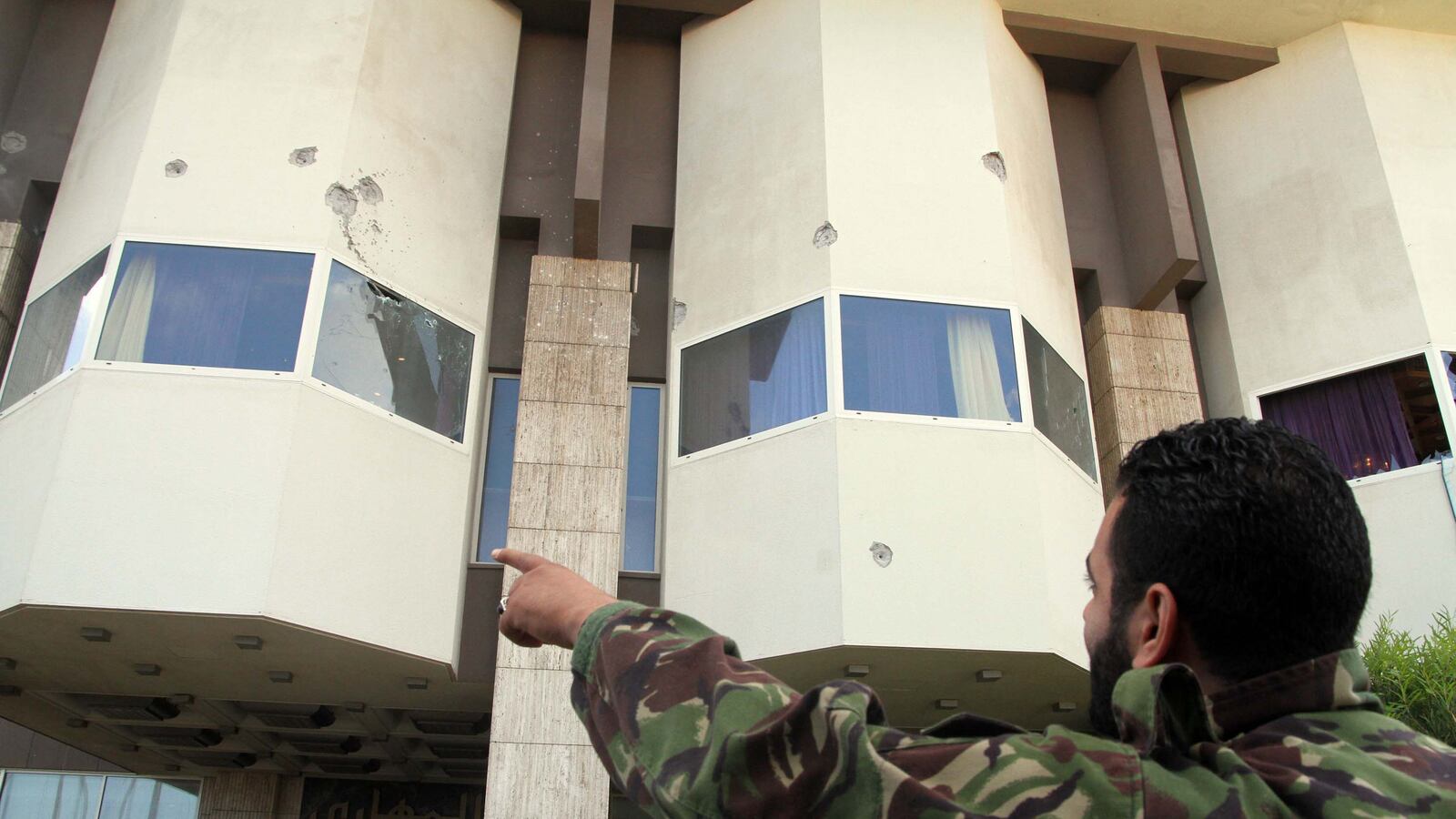Tripoli was engulfed last night in some of the heaviest fighting seen since the ouster of longtime dictator Muammar Gaddafi, as two of the country’s most powerful militias clashed in the capital, plunging Libya deeper into chaos.

Marking yet another low point for a country struggling to establish order amidst high-level kidnappings and assassinations and violence by unruly militias, the Tripoli fighting—which involved automatic gunfire as well as heavy weaponry, including anti-aircraft guns and rocket-propelled grenades—is stoking fears that Libya is edging ever closer to a civil war.
Last night’s firefight was sparked when militiamen from the city of Misrata stormed into Tripoli to avenge the death of one of their commanders who died from wounds sustained during an incident at a checkpoint on Tuesday.
Only 24 hours before, beleaguered Prime Minister Ali Zeidan—who himself was briefly kidnapped by militiamen a few weeks ago—announced that the government would, by the end of the year, stop paying militiamen who refused to join the fledgling regular forces. Zeidan has asked for foreign assistance to help build up a national army. Zeidan’s post-Gaddafi predecessors—he is the country’s third prime minister in the past two years—have made similar threats about stopping payments to the militias but to no avail.
Last night’s fighting also came amid rising tensions over last weekend’s announcement by federalism advocates in oil-rich eastern Libya that they intended to form their own regional administration. Led by tribal leader Ibrahim Jathran, federalists have maintained a blockade since the summer of oilfields and two of the biggest oil-exporting seaports. The blockade has hit the country’s cash reserves, resulting in payments problems.
This week, the country’s largest wheat importer warned it might have to delay a major wheat purchase unless the government starts paying it some of the nearly $100 million owed.
The ire of the Misrata fighters last night was directed at one of the capital’s biggest militias, the Tripoli Brigade. Gunfire shattered the front windows at the Radisson Blu, one of the capital’s few luxury hotels and a favorite of foreign businessmen, and guests were evacuated to the basement and gym for safety.
There were reports of at least 22 injured—including an old woman whose apartment was hit with an RPG round—and two killed in clashes that started at about 9:45pm in the district of Shara Al-Shatt, near the Radisson and Libya’s foreign ministry. But the fighting quickly spread to several other neighborhoods including Suq Al-Juma, Nufleen and Ben Ashour, sending families scurrying for cover or fleeing to their homes. The city elders of Misrata distanced themselves from the militiamen involved in the fighting today, saying they condemn the clashes. The family of the slain commander whose death triggered the infighting also spoke out against the violence.
Many of the city’s residents resorted to their Facebook pages and other social media sites to check on friends. Naziha, a British-Libyan filmmaker, described taking a perilous journey in a taxi home in the crossfire and having to drag the driver “inside as the bullets whizzed past.” “
She added: “They closed our road, which is now their playground, so now he can’t leave because they are fighting in our car park.”
A British businessmen living near the foreign ministry said the clashes went on for more than three hours near his apartment. “It was window-shaking stuff. It was very serious with tons of rounds being off loaded.
It isn’t clear that Zeidan’s government has the strength to pull off its threat to stop paying militiamen. In a midweek statement the government said: “We hope that everyone responds to this call because bonus payments and grants will be suspended after this date, unless the person is a state employee within the military, administrative or civil apparatus.” The government warned that anyone carrying a weapon without authorization after the end of this year would be considered “an enemy of the state.”
The police—who generally can’t be found when serious trouble breaks out—and the fledgling security forces remain disorganized, and don’t have the firepower to match what the militias can bring to bear. While only an estimated 50,000 Libyans fought in militias against Gaddafi the number of brigades has grown and the country’s Warriors Affairs Commission believes there are 250,000 militiamen under arms.
The government hasn’t provided any figure for the numbers of soldiers in the newly minted army, which has to rely on the biggest militias for support in security operations. According to former lawmaker Abdulrahman Shater, who served on the country’s security committee, there are only a few thousand genuine soldiers.
Many militias are heavily influenced by Islamist ideology and are suspicious of Zeidan’s government. The militias of Misrata, Zawiya and Zintan, all key in Gaddafi’s ouster, feel they are the legitimate protectors of the revolution and are unlikely to lay down their arms until they are sure that post-Gaddafi Libya matches their vision for it.






